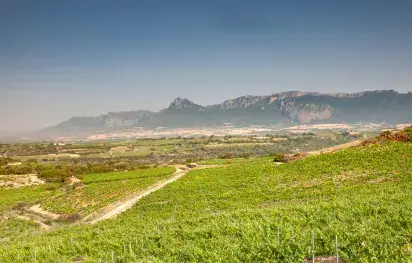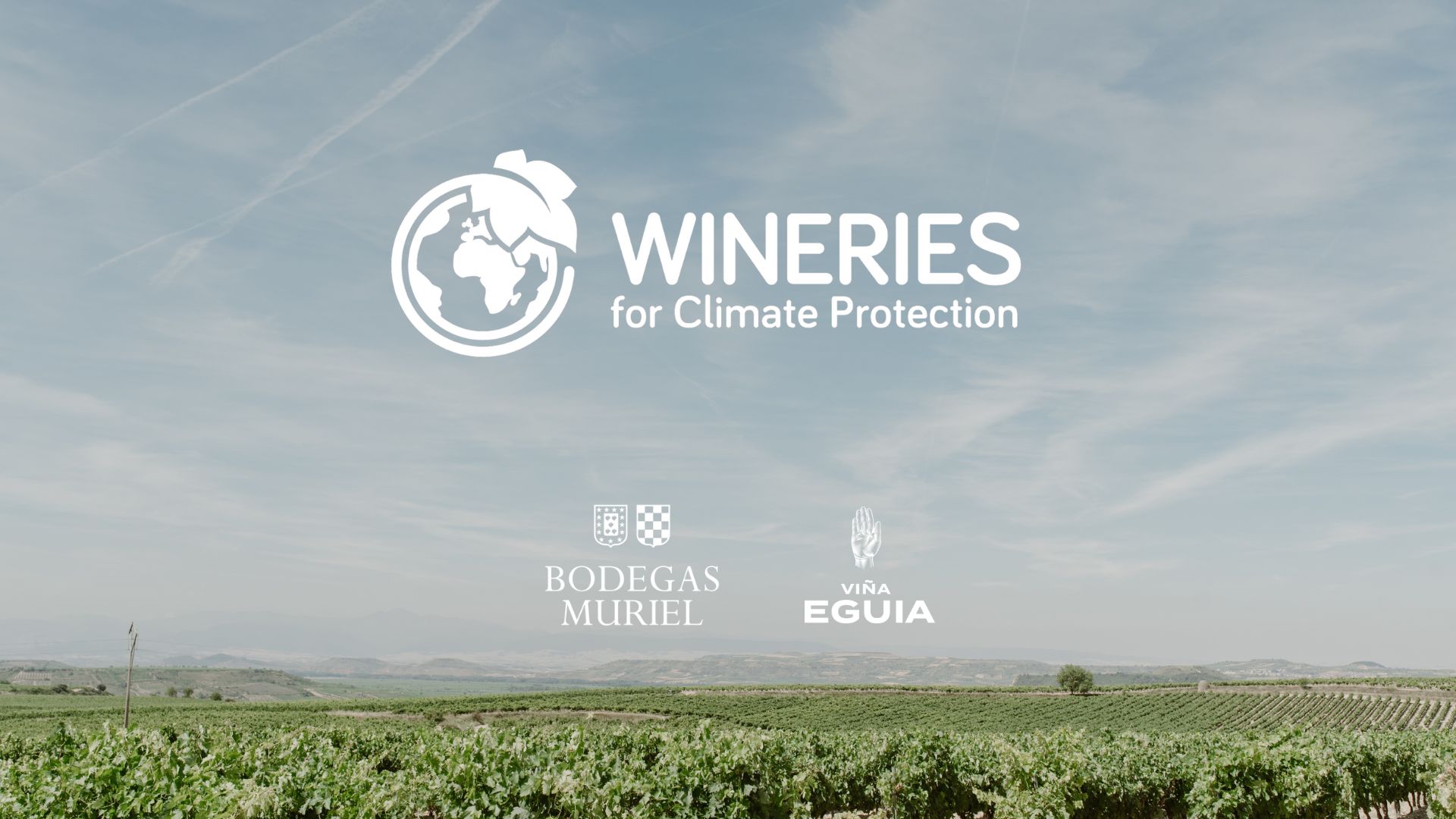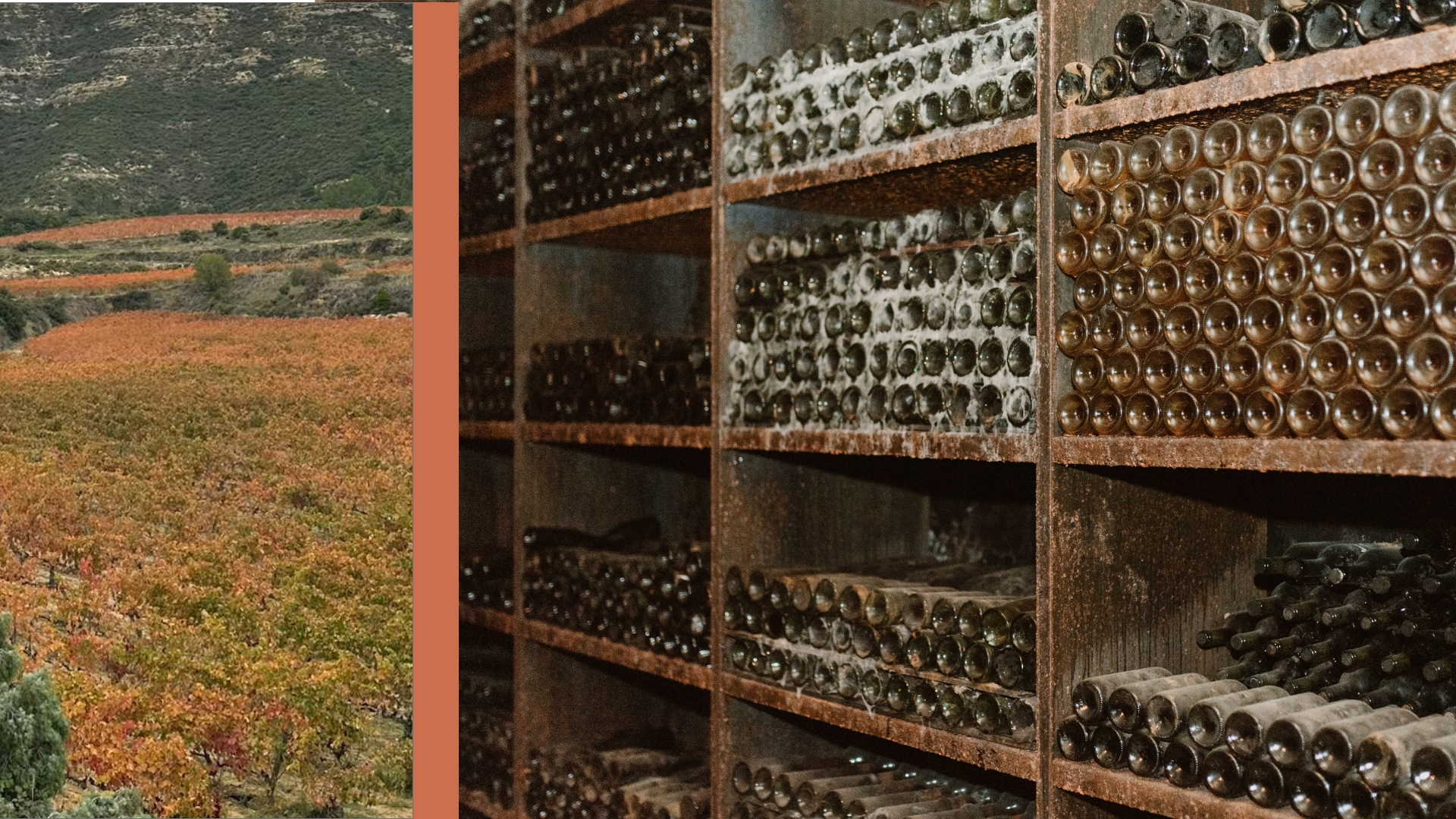Wheat fields and olive groves are visible from our highest vineyards
When someone asks us for a privileged place to enjoy a view of the Mediterranean triad crops in Rioja Alavesa, we have no doubts: our vineyards in Veriquete, in the village of Lanciego.
The Mediterranean triad or trilogy is the name given to the set of essential Mediterranean farming crops: wheat, vines and olives. They produce the three main staples of the traditional diet of the geo-climatic area of the world to which we belong: bread, wine and olive oil, respectively.
All three crops have always been present in Rioja Alavesa. Vineyards nowadays are overwhelmingly more important than the other two. Surface area figures are eloquent: 13,000 hectares under vine compared to 950 hectares of wheat and around 500 hectares planted to olive trees.
A little over a century ago, this scenario was considerably different. The crisis in the wine sector at the end of the 19th century, together with the phylloxera plague that struck Rioja Alavesa in 1902, left barely 300 hectares of productive vineyards. Olive crops grew but never matched the vineyard surface area of the past. The eventual resurgence brought vines back into the limelight.

The cereal fields on the foothills of the Sierra
As we mentioned earlier, the view from Veriquete takes in the entire skyline of the Sierra de Cantabria. At the top, the crest of limestone rocks. Below, the oak and holm oak forests. And on the lower slopes, the gentle hillsides are planted to cereal. Barley is the dominant crop nowadays. Wheat comes second followed by oats. It is mostly used to feed livestock.
The colours of these slopes are unmistakable: green in spring, yellow in late summer, and brownish and light grey in winter. The cereal cycles define these chromatic changes. A little further down, at 650 metres elevation, these crops are virtually all replaced by vines.
Looking south from Veriquete, towards the Ebro valley, the first silvery green patches emerge here and there: they are small olive groves that seem to tentatively assert the Mediterranean character of this land.
You may also be interested in:




